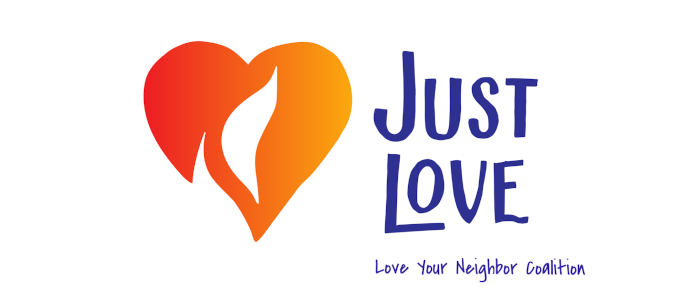LYNC offers Intercultural Communication Training
The training is required for LYNC Volunteers, but open to anyone seeking to improve their global communication skills.
In an effort to create lasting and grace-filled relationships with the diversity of persons who arrive for General Conferences, the Love Your Neighbor Coalition requires Intercultural Communication training for all LYNC volunteers. There are two sessions, the first of which is being offered online. The second sessions will be offered in person at General Conference.
In a spirit of collaboration, this year we will also be offering this training to delegates, staff, and advocacy groups. You must register for the session that you wish to attend. The Zoom invitation to register is below. Please choose between “Colonizing” and “Colonized” Nations. See the full description following the schedule and Zoom links. You will receive a confirmation email after you register. You may attend whichever session is best for you. You need only attend one online
session.
Time zones are listed as follows for your convenience, but should show up automatically in the Zoom registration:
PST = Pacific Standard time (USA)
CET= Central Europe Time
CST - Central Standard Time (USA)
EST = Eastern Standard Time (USA)
EDT/CDT/PDT = Eastern/Central/Pacific US Daylight Savings Time
Topic: LYNC Cultural Communication Training (Colonizing Nations)
Register for Colonizing Nations Sessions Here
Sessions for those identifying as being from Colonizing Nations:
Wednesday, Feb. 28. (Colonizing nations), 7-8:30 AM PST, 9-10:30am CST, 10-11:30am EST, 4-5:30pm CET, Joseph, Sushi
Tuesday, Mar. 5 (Colonizing nations), 7-9:30 PST, 9-10:30 am CST, 10-11:30 am EST, 4-5:30 pm CET, Joseph, Jeff
Thursday, Mar. 7 (Colonizing nations), 5-7:30 PST, 7-8:30 pm MST, 8-9:30 pm EST, 2-3:30 am CET, Joseph, Leah
NOTE: DAYLIGHT SAVINGS TIME begins in the U.S. on March 10
Monday, Mar. 11 (Colonizing Nations), 11 am-12:30 pm PDT, 12-1:30pmMDT, 1-2:30pm CDT, 2-3:30pm EDT, 9-10:30 CET, Joseph, Leah
Topic: LYNC Cultural Communication Training (Colonized Nations)
Register for Colonized Nations Sessions Here
Saturday, Mar. 2 (Colonized nations), 8-10:30 am PST; 10-11:30 am CST, 11 am-12:30 pm EST, 5-6:30 pm CET, Joseph, Leah
Tuesday, Mar. 5 (Colonized nations), 9 PM - 11:30 PM PST, 11pm-12:30 am CST, 12 am-1:30 am EST (Mar. 6), 6-7:30 am CET (Mar. 6), Joseph, Sushi
Friday, Mar. 15 (Colonized nations), (11 PM(Mar. 14)- 12:30 AM PDT Mar. 15), 12-1:30 am MDT, 1-2:30 pm CDT, 2-3:30 am EDT, 7-8:30am CET Sushi, Joy Eva (Joseph)
Training Description:
For the 2024 General Conference, there are two trainings: one on line and a second on-site in Charlotte. These opportunities will help participants recognize differences in communication styles and dynamics of power and privilege that impact our conversations. Together, we will develop our skills to have constructive conversations that respect cultural differences and center marginalized voices. A cohort of trainers from around the world designed these trainings based on their extensive experience with intercultural community building and gender justice work in multiple countries. These trainings will be held virtually in late February and early March, with in-person options at General Conference.
We will have participants joining from nations that historically have colonized other nations, like much of Europe and the United States, but we will also have participants from countries that have historically been colonized, like Kenya, the Philippines, DRC, Zimbabwe and others. Because the conversations may differ based on the ways a history of colonialism and coloniality have impacted power dynamics in different contexts, we have split the trainings into one set of trainings geared towards participants coming from historically colonizing nations (Europe and the U.S.), and one set of trainings geared towards participants coming from historically colonized nations (e.g. Kenya, the Philippines, DRC, Zimbabwe and others). The trainings will address the same topics, so you will not miss anything by choosing one over the other, but please attend the training you feel best reflects your own context. We understand that some people may feel in-between and contexts, and encourage you to select the training in which you would feel safest.
If you have any questions, please feel free to contact Joseph Russ at joeyruss2@gmail.com.
